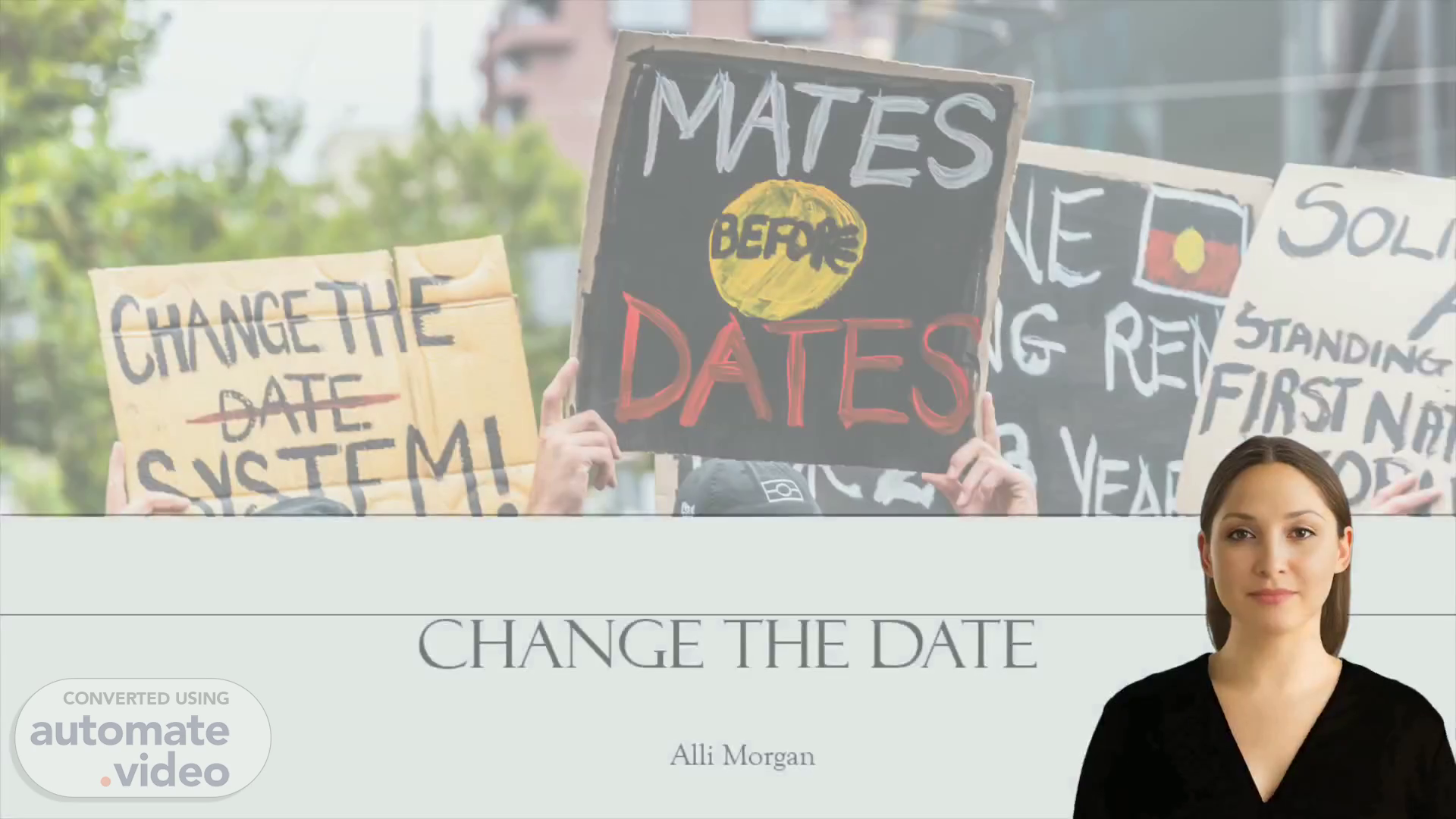Page 1 (0s)
[Virtual Presenter] Change the date Alli Morgan. Change the date.
Page 2 (7s)
[Virtual Presenter] The issue The "Change the Date" issue in Australia revolves around the annual celebration of Australia Day, which falls on January 26th. This date marks the anniversary of the arrival of the First Fleet of British ships in 1788 at Port Jackson, an event that led to the colonization of Australia. While for many Australians, it is a day of national celebration with barbecues, fireworks, and festivities, for Indigenous Australians, it represents a painful reminder of colonization, dispossession, and the ensuing mistreatment and marginalization of their communities..
Page 3 (50s)
[Audio] The latch Australia Day, celebrated on January 26, is a divisive issue in Australia due to its historical significance to First Nations peoples. In 2021, 39% of respondents in the Australia Talks National Survey believed the date should be changed, indicating growing support for change. Actions have been taken to move the Hottest 100 music countdown away from January 26 and alter celebrations in some local councils, despite criticism from politicians. The Indigenous community sees changing the date as crucial to acknowledging their pain and addressing systemic issues, with a call for individuals to engage in conversations and support Indigenous causes on January 26..
Page 4 (1m 40s)
[Audio] mamamia The debate in Australia centers on whether January 26, the date of British settlement and the current national day, should be retained. Some argue for preserving January 26 as a modern tradition celebrating Australia today, while others emphasize its historical context and oppression of Indigenous peoples. Key arguments against changing the date include concerns about celebrating Australia's identity, historical distance, tokenism, and unity. These arguments highlight the complexity of the issue. The article encourages empathy by asking readers to consider how they would feel if Australia were invaded today, fostering a deeper understanding of the Indigenous perspective and the need for a more inclusive date for national celebrations..
Page 5 (2m 32s)
[Audio] Australian ethical The Australia Day debate has evolved from celebrations to discussions about its meaning, with advocates calling for a new date. Indigenous Australians, who have inhabited the land for over 60,000 years, suffered displacement and hardship due to colonization. January 26, the current date for Australia Day, is viewed as a day of mourning for many Indigenous people because of the significant population decline caused by colonization. Changing the date is seen as a step toward a more inclusive and multicultural representation of Australia, promoting learning, respect, and reconciliation while addressing colonial stigmas..
Page 6 (3m 18s)
[Audio] My opinion Being an Indigenous Australian I am all for the changing of the date. Aboriginal people had their land taken off them they had to undergo years and years of racism, segregation and torment on behalf of white Australians, and still many Australians to this day see the 26th of January a day of celebration thinking the date was when Australia was founded when there is years and years of research and proof that the Indigenous people founded the country, and it is our land..
